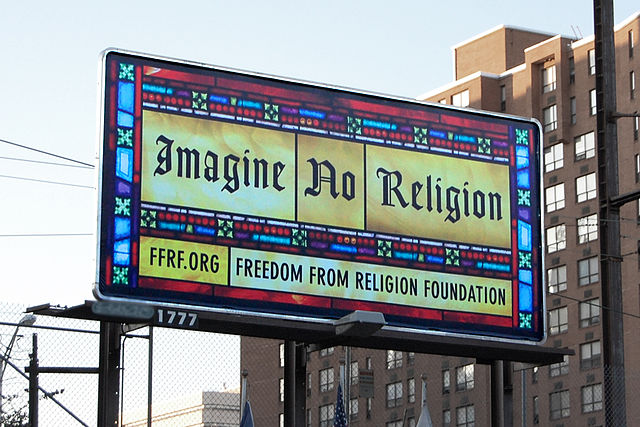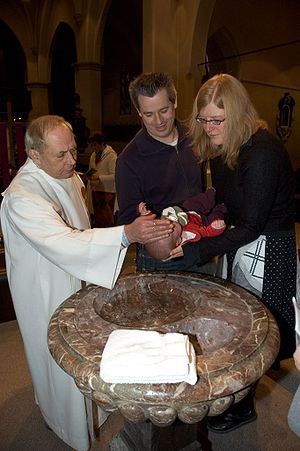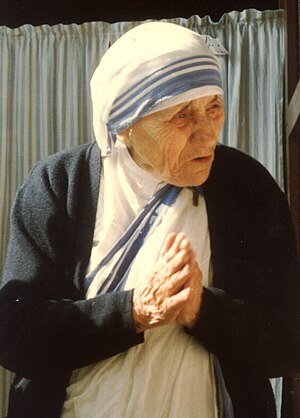Athletes need to do a lot more than just show up to a match. A soccer player cannot pat himself on the back after the game because he only managed to keep the ball in bounds. A football player cannot claim success just because he didn’t draw a penalty. No track runner will stand on the medal podium for simply finishing the race. In all sports, athletes need to excel and contribute to their team’s victory. They need to pay attention to their coaches, follow the rules, and respond to the always changing situations on the field.
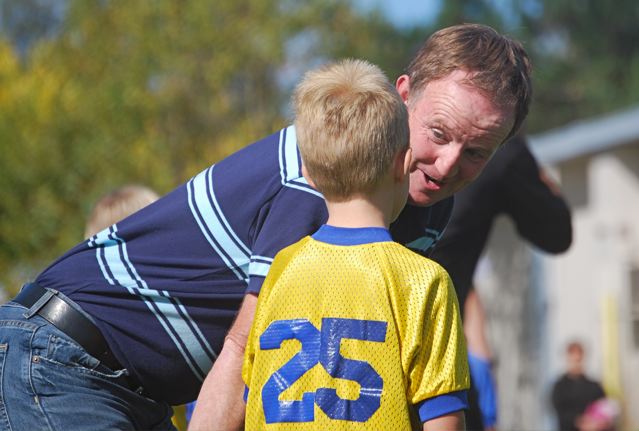
Yet, as Catholics, we often live as if we are just showing up to the match instead of focusing on excelling and contributing to build up God‘s church. We often fall into a pattern where we believe just following the rules is good enough. We tend to think that just fulfilling our Sunday obligation of attending Mass also fulfills our life’s obligation of being Catholic. We might even think that being a good Catholic means only avoiding mortal sin. But showing up at Mass and avoiding mortal sin is like the football player just managing not to run out of bounds or draw a penalty. That is the bare minimum that our faith requires. We are called to listen to God and His Church and respond by publicly living our faith in an often challenging world.
Pope Francis, when he was Cardinal Bergoglio put it best when he explained the story of the prophet, Jonah. In a 2007 interview in the magazine, 30 Days, and reprinted in the Catholic San Francisco, the pope said this about Jonah:
Jonah had everything clear. He had clear ideas about God, very clear ideas about good and evil. On what God does and on what he wants, on who was faithful to the covenant and who instead was outside the covenant. He had the recipe for being a good prophet. God broke into his life like a torrent. He sent him to Nineveh. Nineveh was the symbol of all the separated, the lost, of all the peripheries of humanity. Of all those who are outside, forlorn. Jonah saw that the task set on him was only to tell all those people that the arms of God were still open, that the patience of God was there and waiting, to heal them with his forgiveness and nourish them with his tenderness. Only for that had God sent him. He sent him to Nineveh, but he instead ran off in the opposite direction, toward Tarshish.
What he was fleeing was not so much Nineveh as the boundless love of God for those people. It was that that didn’t come into his plans. God had come once … ‘and I’ll see to the rest’: That’s what Jonah told himself. He wanted to do things his way, he wanted to steer it all. His stubbornness shut him in his own structures of evaluation, in his pre-ordained methods, in his righteous opinions. He had fenced his soul off with the barbed wire of those certainties that instead of giving freedom with God and opening horizons of greater service to others had finished by deafening his heart. How the isolated conscience hardens the heart! Jonah no longer knew that God leads his people with the heart of a father.
This story reminds me very much about how we often live our faith. We live it according to a set of pre-defined rules and regulations thinking that is all God wants of us. I know I certainly fall into that trap where I just go to Mass, go to Confession, abstain from meat on Fridays, avoid mortal sin, and pray the rosary. I can check all those tasks off my spiritual “to-do” list so I’m done with my Catholic obligations right? Wrong! God, like a coach, says, “Good for you, now that you’re warmed up let’s get to work.” That’s right, all those “tasks” that we do are just the warm up to living as a true person of faith. The fasting, the prayers, and going to Mass are almost meaningless if they aren’t followed by an openness to the Holy Spirit to live the faith. Following the Church’s rules is the “practice” that prepares us for the “main event” which is responding to God’s call to be a living example of His love.
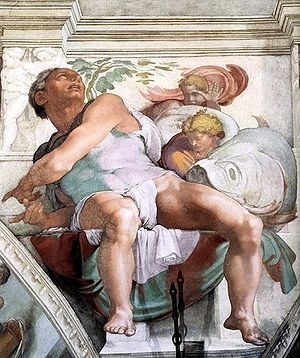
What RosaryMeds do I Need?
Almost all Catholics periodically suffer from a case of itsgoodenoughitis. Symptoms include:
- Just thinking about your faith once a week (or less) at Mass
- Just saying quick prayers without putting much thought into them
- Living in ways and holding beliefs that are contrary to what the Church teaches
- Just not giving a lot of thought on what being a good Christian really means
This will require a double dose of rosary mysteries. When you meditate on the rosary, pay particular attention to the First Luminous Mystery and the Fourth Luminous Mystery. In both Jesus’ baptism and the Transfiguration, God spoke directly to the disciples and said “Listen to My Son!” But we are often like Jonah and ignore what God is actually telling us and want to do things our own way. When Jesus challenges us to put in a little extra effort in living our faith, we can’t just fall back on solely following the rules. Like a good athlete, we need to listen to God, our coach and mentor, and alter our strategy based on His guidance. God knows what we are capable of and won’t ask us to take up a challenge we cannot handle. He is always there on the sidelines saying, “Trust Me. You can do this!” We need to listen to God and have faith that following His Will will lead us to victory — the victory of living in His heavenly kingdom for all eternity.
Related articles
- Pope Francis leads Palm Sunday Mass (foxnews.com)
- The true story of Jonah (dusky711.wordpress.com)
- Cardinal Jorge Mario Bergoglio: “Our certainties can become a wall, a jail that imprisons the Holy Spirit.” (lifeondoverbeach.wordpress.com)
- Pope Francis opens Catholics’ Holy Week (cbsnews.com)
- Jonah, the Stubborn Prophet (wadevenden.wordpress.com)


